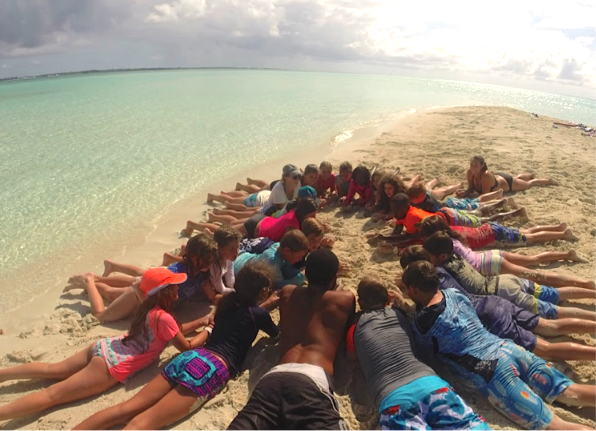Preparing to Become an International Teacher
A MiddleWeb Blog
 I began teaching internationally more than 15 years ago, and it’s been a rich and rewarding life.
I began teaching internationally more than 15 years ago, and it’s been a rich and rewarding life.
Perhaps you’ve made up your mind. You want to teach abroad. You’ve read the articles and done your homework, and it seems to be the best next step for your career.
Hiring for international schools begins in mid-autumn, so you most likely have some months to prepare your application. When you are ready to commit, how can you make yourself the best candidate for an international school?
Keep an open mind.
The broader the locations where you are willing to work, the more likely you are to receive an offer. There are excellent schools all over the world where you can build experience, make connections, and grow as an educator in unexpected ways.
I have taught in a rural school with five teachers and 42 students, as well a school with thousands of students. Each has made me who I am – inside and outside of the classroom.
Diversify your skills.
International teachers play many roles outside the classroom, and responsibilities like coaching or advising a club are usually written into contracts. The most appealing candidates are those who can contribute to a school in a variety of ways. You don’t have to be a champion swimming coach or debate moderator (although it helps); share your passions with your school community, whatever they may be.
I have sponsored a literary magazine, advised the Eco Club, tutored for the SAT and SSAT, and led sewing and book clubs. Take the time this year to become involved in at least one new activity that you can add to your resume.
Take the lead.
International schools look for teachers who will take on leadership roles and are comfortable with ambitious projects. Just days after joining one school, I was asked to guide the Eco Club through their Green Flag recertification process. I was excited by the opportunity to show my abilities and get to know the students outside of the classroom.
Aside from leading extracurricular activities, there are always grade level leader positions and various committees to join. Schools look favorably on applicants with experience in these areas.
Create a portfolio.
As the majority of hiring is done over Skype or at a job fair, it is rare to teach a demonstration class or get all the time you want to present your skills. A thorough portfolio will give schools a better representation of who you are. Create a website that includes your resume, a video introduction, some photos of yourself in the classroom, your teaching philosophy, and what you can offer a school in terms of technology, extracurriculars, and leadership.
You might include links to your classroom website, professional Twitter account, or anything else that you want to highlight but could get lost in a fast-paced interview.
Commit to lifelong learning.
Professional development is built into most teachers’ schedules and is usually a requirement for maintaining your teaching license. International schools are looking for educators who go above and beyond to enhance their craft. This might include working towards advanced degrees or certification (COETAIL is a popular program for educators abroad) or presenting at conferences.
There are many free ways to show your enthusiasm for the field: write an article for MiddleWeb or a professional organization, become a regular participant in a Twitter chat and offer to guest-moderate, organize an Edcamp or a PLAYDATE for your district, host lunchtime learning opportunities for your colleagues, or participate in online professional development courses from organizations like ASCD and Newsela.
If you have innovative uses for Weebly, Book Creator App, Nearpod, or many other apps, you could apply to be an ambassador and gain presentation skills, in-depth knowledge of a program, and a resume boost.
Gain international experience.
A typical contract is for two years, and schools do not want to hire someone who will leave early because they realize they don’t like living abroad. While nothing compares with evidence you’ve spent extended time overseas, there are some ways to add international flavor to your portfolio.
If you studied internationally while you were in college, add it to your resume. The US government offers programs to help teachers go abroad. There are other organizations that offer study tours or fellowships for teachers, including National Geographic, Earthwatch, and the Goethe Institut Transatlantic Outreach Program.
You could also organize a trip for students through a company like EF Education First. In the past, I led summer trips and semesters abroad for companies like Global Routes and LEAPNow. Every experience demonstrates that you are curious about the world and capable of handling the inevitable challenges that arise when navigating a new culture.
The best result of all the effort it takes to make yourself an appealing candidate is that it also makes you a better teacher. This benefits your students, no matter where you teach. I wish you the best of luck as you prepare for your journey abroad, and I’m happy to answer any questions in the comments section.







































What wonderful ideas! Thank you for sharing!